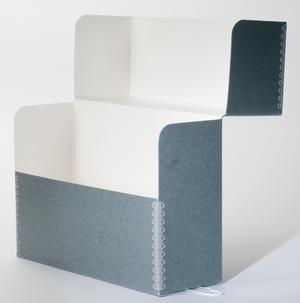- Contact Us
- Emergency Information
- Facility Rental
- Jobs
- Site Map
- Site Policies
- Web Accessibility
- Web Privacy
- © Harry Ransom Center 2025

SIGNATURES
Identified individuals are represented by a biographical sketch, a list of connections to other signatures, and, in most cases, an artifact from the Ransom Centers collections. Help us identify more signatures by submitting your suggested identification.
X
X
THE DOOR
 Location on door: front, panel 2
Location on door: front, panel 2
MARY ALDIS
The playwright, poet, and patron of the arts Mary Aldis (1872-1949) was a key figure in the little theater movement. In 1911, Aldis constructed a playhouse from an old cottage on the grounds of her summer estate in Lake Forest, Illinois, a wealthy suburb of Chicago. During the 1910s she produced, composed, and acted in plays with her company the Lake Forest Players. Together with her husband, real estate developer Arthur Aldis, she provided financial support to numerous artistic ventures, including Poetry magazine and, in the summer of 1923, the Wharf Players in Provincetown, Massachusetts, a theater troupe that included Harry Kemp, Mary Heaton Vorse, Frank Shay, and others. According to Kemp's biographer, William Brevda, Aldis rescinded her patronage of the group after they held a wild party next to her Provincetown lodging and failed to invite her or any of the Players other wealthy patrons. Aldis's best-known one-act play is Mrs. Pat and the Law and her published works include Plays for Small Stages (1915), Flashlights (1916), a collection of poems, the novel Drift (1918), and No Curtain: Suggested Themes for Impromptu Plays (1935).

Two letters from Mary Aldis to Edgar Lee Masters, January 17, 1932 and April 8, [19??].
These two letters record Aldis's friendship with the Chicago poet Masters. In the first, Aldis compliments Masters on the lasting impact of his Domesday Book (1920), writes of the poetry scene in Winterhaven, Florida, and tells of the establishment of an art school on her old Lake Forest property. The other more cryptic letter, dated only "April 8th," likely addresses some element of Masters's very messy, protracted, and public divorce from his wife, Helen. The drama of their separation and divorce played out between 1919 and 1923. It effectively ended Masters's legal career, damaged his reputation, and led him to abandon Chicago for New York.

